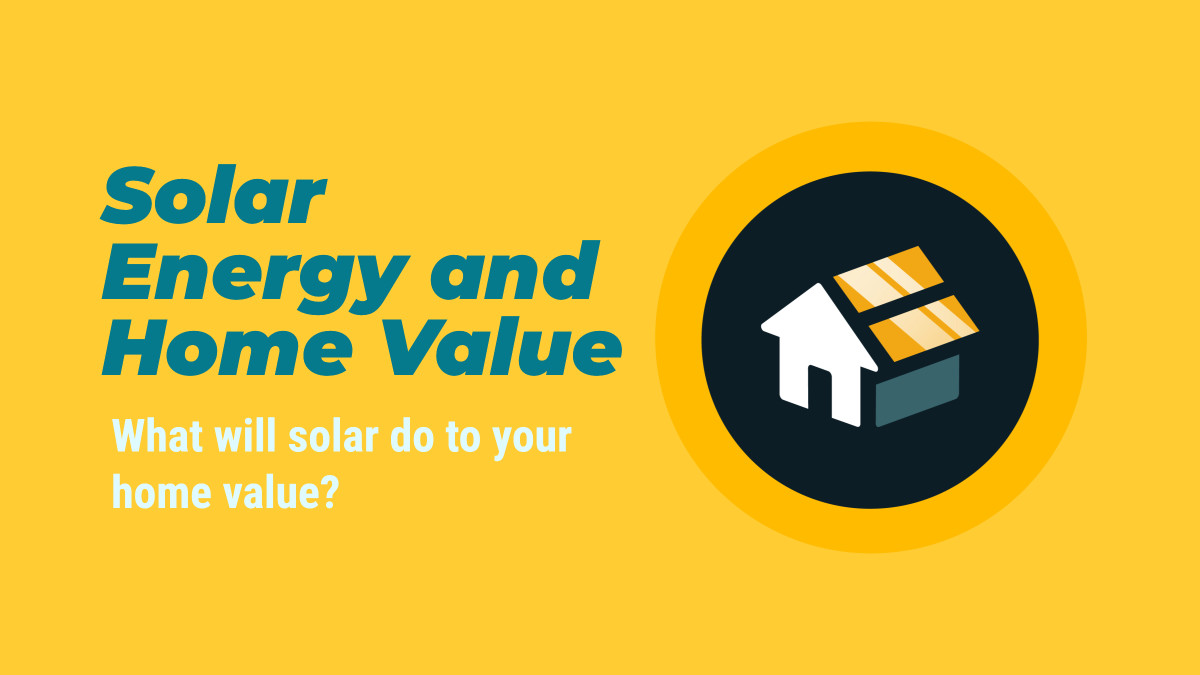The average homeowner in United State spends about $72,000 on their electricity each year. Solar panels can help offset this cost by providing free power from the sun. In addition to saving money, solar panels also increase the value of your home.
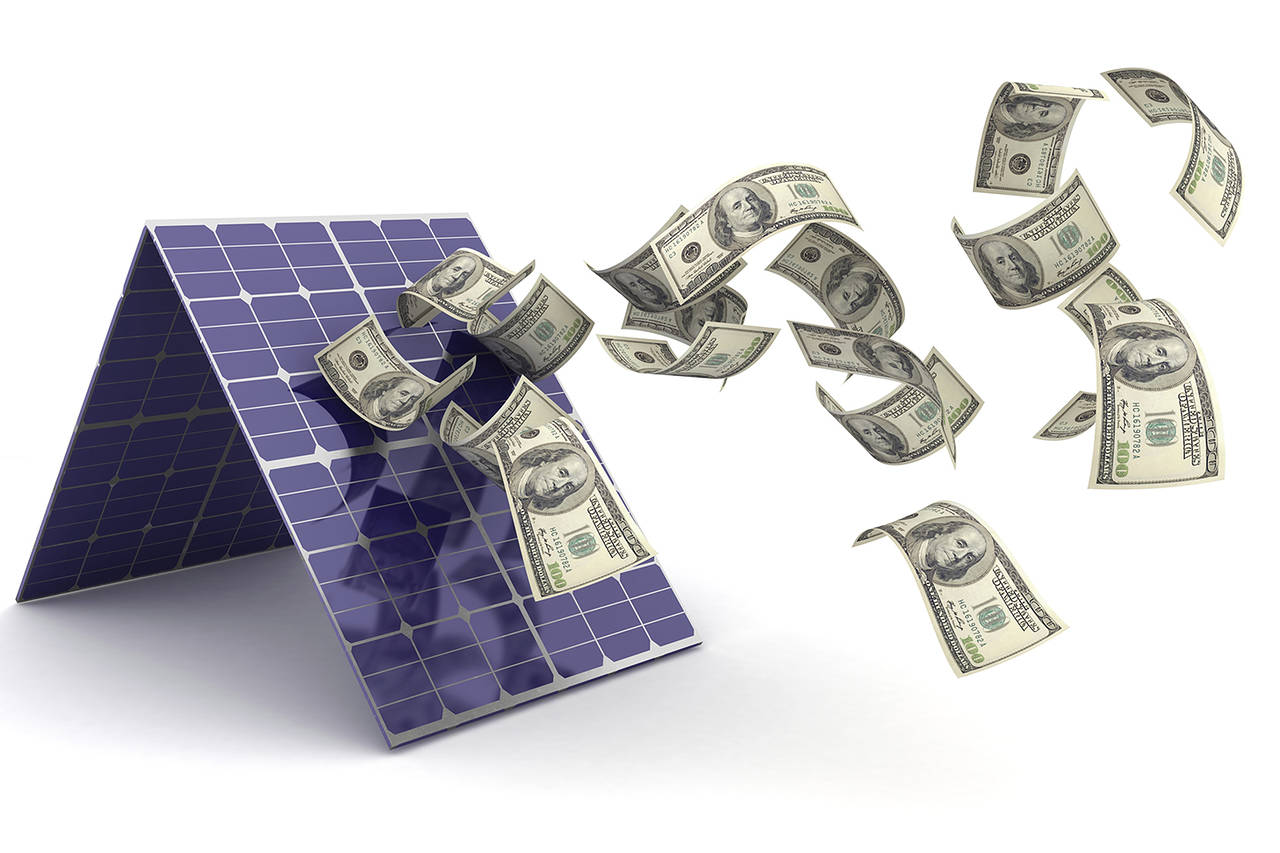
As more and more homeowners are looking for ways to increase the value of their homes, solar panels are becoming an increasingly popular option. In addition, solar panels can help to protect the environment by reducing your carbon footprint. In the upcoming paragraph, we will explore how solar panels can increase your home’s value and make it more attractive to potential buyers.
How Much Does Solar Add to Property Value
Solar panels have become increasingly popular in recent years as more and more homeowners are looking for ways to save money on their energy bills. But what many people don’t realize is that solar can also add significant value to your home. Homeowners who are considering selling their property may be wondering how much premium solar panels will add to the value. While there is no definitive answer, studies have shown that homes with solar Systems do sell for more than their non-solar counterparts. In some cases, the increase in value can be as much as 4% – 5%.
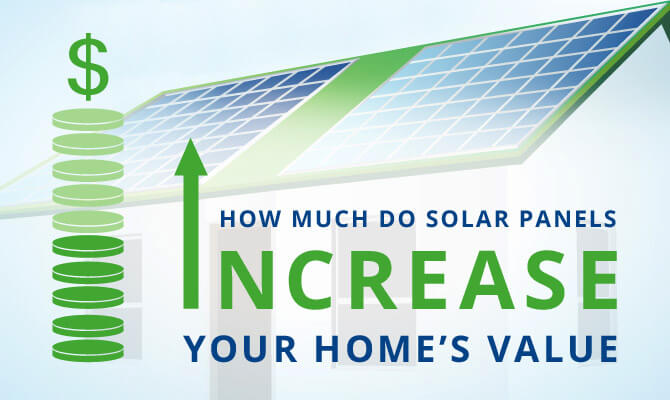
The average Property Owner can expect to see a 3-4% increase in their home’s resale value after installing solar. This means that if you have a home that is worth $200,000, you can expect to see your home’s value increase by $6,000 to $8,000 after solar has been installed. Of course, the amount of money that solar adds to your property value will depend on a number of factors, that will be discussed in upcoming paragraphs.
While there is no guarantee that your home’s value will go up after installing solar panels, it is definitely worth considering if you are thinking about selling in the near future. Not only could you potentially get a higher sales price, but you’ll also be able to market your home as an eco-friendly option, which is increasingly appealing to buyers.
So, how much will installing solar panels do for your home? Let’s take a look at some average prices:
| Home Solar System Size | Amount Solar Panels Increase Home Value* |
| 4 kW | $23,644 |
| 6 kW | $35,466 |
| 8 kW | $47,288 |
| 10 kW | $59,110 |
Factors influencing the Value of a Solar Home
When it comes to solar homes, there are a few key factors that will influence the value of your home. Here are a few things to keep in mind:
Location
The value of a solar home is influenced by many factors, with the location being one of the most important. Solar homes in sunny locations will obviously be worth more than those in more overcast areas. This is because solar panels rely on sunlight to generate power, so a home in a sunnier location will produce more power and therefore be more valuable.
Elevation also makes a difference, as homes at higher altitudes will receive more sunlight than those at lower altitudes. Finally, local climate patterns can have an impact on solar home values. For example, homeowners in regions with hot summers and lots of sunlight will be able to take advantage of solar power for air conditioning, which will increase the value of their property.
| City | % Sunshine | Hours of Sun | Clear Days |
|---|---|---|---|
| Phoenix, Arizona | 85 | 3872 | 211 |
| Las Vegas, Nevada | 85 | 3825 | 210 |
| Sacramento, California | 78 | 3608 | 188 |
| Los Angeles, California | 73 | – | 147 |
| Miami, Florida | 70 | 3154 | 74 |
| Denver, Colorado | 69 | 3107 | 115 |
| Oklahoma City, Oklahoma | 68 | 3089 | 139 |
| San Diego, California | 68 | 3055 | 146 |
| Salt Lake City, Utah | 66 | 3029 | 125 |
| San Francisco, California | 66 | – | 160 |
| Tampa, Florida | 66 | 2927 | 101 |
Electricity Costs
One benefit of solar power is reducing your dependence on utility companies to provide power to your home. Homeowners can use solar panels to provide their own energy, which reduces their costs and saves them money over time.
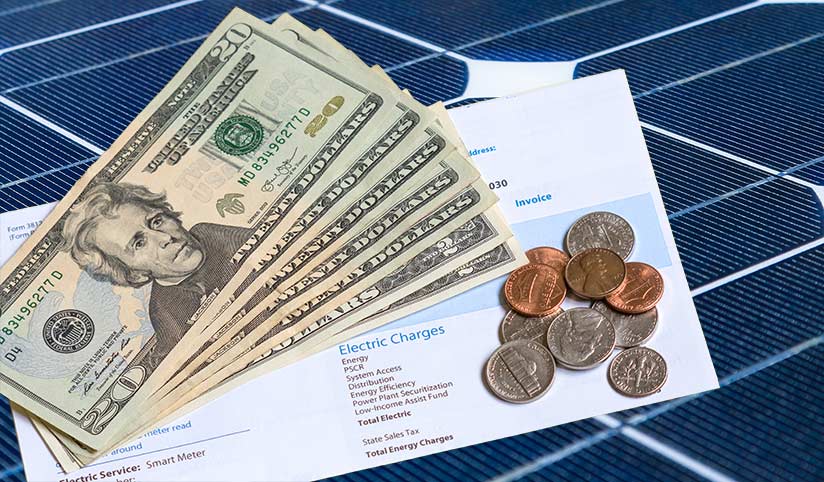
Solar batteries can store excess energy that your solar panels generate throughout the day. This stored power can help power your home overnight or during unexpected outages. Solar batteries are also more cost-efficient because you can store the energy when electricity rates are highest and use it when they’re lower to save more money.
Local Market Condition
The local market conditions in your area will have the biggest impact on your home’s value. If you live in an area with a strong real estate market, your Solar home will likely be worth more than if you live in a market that’s struggling. The current state of the economy also plays a role in local market conditions. If there are lots of buyers looking for Solar homes and not enough Solar homes available for sale, prices will go up. But if there are more homes available for sale than buyers looking to purchase, prices will go down.
The supply and demand of homes in your area will also impact your home’s value. If there aren’t many homes available for sale, buyers are willing to pay more because they have fewer options. But if there are lots of homes on the market, buyers can be pickier and they’ll likely pay less because they have more options to choose from.
Type of Solar System installed
The type of solar system installed is one of the key factors influencing the value of a solar home. Solar photovoltaic (PV) systems that are connected to the grid and provide power for the home during daylight hours are typically valued higher than those that are not connected to the grid. The capacity of the PV system is another key factor, as a larger system will typically result in lower electricity bills and therefore a higher value for the home.
Age of Solar System
The value of a solar home can be influenced by many factors, including the age of the Solar System. In general, older systems tend to be less valuable than newer ones. This is because older systems are less efficient and may not have all of the latest features and technology. Additionally, older systems may require more maintenance and repairs, which can add to the cost of ownership.
Do Solar Homes Affect Property Tax?
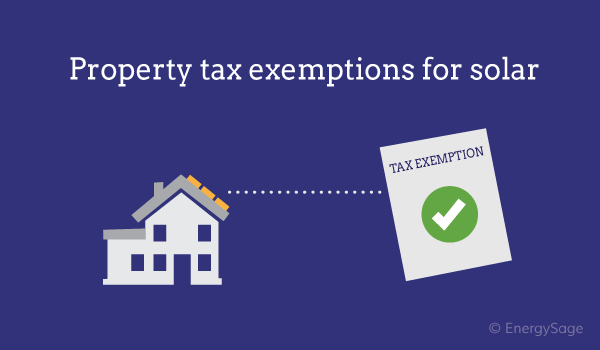
When it comes to solar homes and property taxes, there are a few things to keep in mind. First, the value of your home may increase after installing solar panels. This means that your property tax bill could go up as well. However, there are also a number of tax incentives and credits available for homeowners who install solar panels. These can offset the cost of your property tax increase, and may even result in a net decrease in your overall tax bill. It’s important to do your research and talk to your local tax authorities to see what solar incentives are available in your area. With a little bit of planning, you can ensure that going solar doesn’t end up costing you more in property taxes.
Many states now give homeowners an opportunity to receive a property tax exemption or sales tax exemption for residential solar installations. Different states have different policies so it’s important to check with your personal state about their specific laws. For example, some states may offer a 35% exemption, while others limit exemptions to 4 years. Make sure you know your state’s rules so you can maximize your increased property value.

